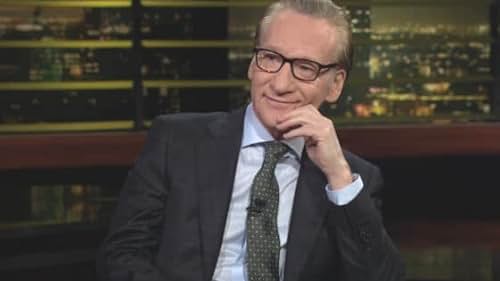Bill Maher and Charli XCX’s Viral Impact on Kamala Harris’ Image
In a world where social media trends can shape public perception in real-time, the recent “Brat” phenomenon has stirred conversations across various platforms. This viral trend, sparked by British singer Charli XCX’s latest album “Brat,” has unexpectedly intersected with American politics, particularly surrounding Vice President Kamala Harris. As Bill Maher delved into this topic on a recent episode of “Real Time,” he found himself puzzled by the association of Harris with the term “brat.” Let’s explore how this trend has gained momentum and what it means in the broader context of pop culture and politics.

The Origins of the “Brat” Phenomenon
The “Brat” phenomenon began when Charli XCX dropped her album titled “Brat” in June 2024. The album quickly resonated with Gen Z and millennial audiences, leading to a surge of TikTok dances, memes, and fashion trends that embraced the “brat” lifestyle. But what exactly does “brat” mean in this context? Charli XCX herself defines it as someone who is “a little messy, likes to party, says dumb things sometimes, and is blunt and honest.” This characterization has struck a chord with younger generations who value authenticity and self-expression, even if it means being a bit chaotic.
Bill Maher’s Confusion and Commentary
During his conversation with CNN anchor Kaitlan Collins, Bill Maher admitted that he was out of touch with the “brat” phenomenon. Having just returned from a month-long hiatus, Maher seemed perplexed by the term’s association with Vice President Kamala Harris. “What do you think about this? Somehow, Kamala got to be ‘brat,’” Maher asked Collins, who responded with a hint of humor, “Are you jealous?”
Maher’s confusion is not surprising, given that the term “brat” traditionally carries negative connotations. However, in the realm of internet slang and modern pop culture, its meaning has evolved. For younger audiences, being a “brat” can signify a sense of rebelliousness and non-conformity, traits that are often celebrated in online communities.
Kamala Harris and the “Brat” Label
The association of Kamala Harris with the “brat” label is both intriguing and unexpected. It’s worth noting that this label is not something Harris or her campaign actively sought out. Instead, it emerged organically as part of the larger cultural conversation sparked by Charli XCX’s album. Harris’ campaign, recognizing the potential to connect with younger voters, has leaned into the trend, albeit cautiously.
Kaitlan Collins noted during her discussion with Maher that the Harris campaign, like many others, is trying to reach out to young people. This demographic is known for its low voter turnout, making it crucial for political campaigns to find creative ways to engage them. The “brat” label, despite its unconventional nature, may offer a unique avenue for Harris to resonate with younger voters who appreciate the candid, no-nonsense attitude that the term embodies.
The Intersection of Pop Culture and Politics
The intersection of pop culture and politics is not a new phenomenon, but it has become increasingly pronounced in the age of social media. Figures like Donald Trump have long understood the power of memes, podcasts, and viral trends to reach audiences that traditional political messaging might miss. As Collins pointed out, Trump’s campaign has also been making efforts to connect with young voters, albeit through different channels.
In this context, the “brat” phenomenon represents a broader trend of political figures embracing, or at least acknowledging, the language and symbols of youth culture. Whether this approach is effective in swaying votes remains to be seen, but it highlights the growing influence of online communities in shaping political narratives.
Bill Maher’s Concerns: Is “Brat” Presidential?
Despite the playful nature of the “brat” trend, Bill Maher expressed genuine concern about its implications for political leadership. After reading Charli XCX’s definition of “brat,” Maher remarked, “I don’t want my president to be this.” His comment reflects a broader unease with the idea of political figures being associated with behaviors that might be seen as immature or irresponsible.
Maher went further, suggesting that the term “brat” might be more fitting for Donald Trump than Kamala Harris. “It sounds like Trump,” he said. “I think he’s very brat.” This comparison underscores the ambiguity of the term and how its meaning can shift depending on the context.
The Role of Social Media in Political Campaigns
As social media continues to play a central role in shaping public discourse, political campaigns must navigate the fine line between engaging with popular culture and maintaining the dignity of their candidates. The “brat” phenomenon, while seemingly lighthearted, raises important questions about how political figures are perceived and how they choose to engage with trends that originate outside the traditional political sphere.
For Kamala Harris, the challenge lies in leveraging the “brat” label to connect with young voters without alienating other segments of the electorate. It’s a delicate balancing act that requires careful messaging and a deep understanding of the cultural landscape.




